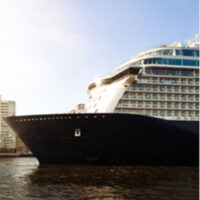Cruise Ship Slip-and-Fall Injuries: Understanding Liability and Your Rights

Unfortunately, slip-and-fall accidents aboard cruise ships are common and can cause significant injuries. These can deeply affect your vacation experience and potentially lead to lasting physical and financial hardships. When embarking on a cruise, passengers rightly expect a safe environment. Regrettably, negligence or insufficient safety protocols by cruise ship operators can create hazardous conditions, placing passengers at serious risk.
Common Causes of Slip-and-Fall Accidents on Cruise Ships
Cruise ships feature numerous amenities like swimming pools, restaurants, entertainment venues, and extensive deck areas, designed for relaxation and enjoyment. However, without proper maintenance and safety protocols, these same areas can become hazardous. Typical scenarios include slippery decks from spilled beverages or rainwater, poorly maintained floors or stairways, inadequate lighting, and obstructions or debris left unattended in walking paths. Areas like pool decks frequently become dangerous due to accumulated water from pools, hot tubs, and showers, especially when cruise ship staff do not promptly clean or properly warn passengers.
Indoor locations such as dining rooms, buffet areas, and restrooms also pose slip-and-fall risks if spills are left uncleaned or if warning signs are absent or inadequately placed. Passengers navigating these areas without anticipating dangers can suffer unexpected and severe injuries, including broken bones, traumatic brain injuries, spinal injuries, or soft tissue damage.
Cruise Lines’ Duty of Care Under Maritime Law
Under maritime law, cruise ship operators owe passengers an obligation known as a duty of care, requiring them to maintain reasonably safe conditions throughout the vessel. This includes regularly inspecting the premises, promptly addressing hazards, and clearly warning passengers about any potential dangers. This standard is established in significant legal cases such as Kermarec v. Compagnie Generale Transatlantique, 358 U.S. 625 (1959), affirming cruise lines’ responsibility to protect their passengers from foreseeable risks.
Specifically, cruise lines must swiftly respond to known hazards like slippery surfaces, liquid spills, or damaged railings. Failing to adequately address these risks constitutes negligence under maritime law, making the cruise line potentially liable for resulting injuries.
Proving Negligence and Seeking Compensation
To establish negligence in a slip-and-fall claim against a cruise line, immediate and thorough documentation of the accident is crucial. Victims should report their injuries promptly to ship personnel, ensuring an official incident report is documented. Additionally, gathering photographic or video evidence of the hazardous conditions, injuries, and surrounding environment is essential. Witness accounts and contact details can further strengthen your claim.
Seeking immediate medical attention onboard the cruise ship is critical, not only for personal health but also to officially document your injuries and their direct relation to the accident. Follow-up medical evaluations and treatments after leaving the ship further solidify your claim by demonstrating the extent and impact of your injuries.
When pursuing compensation, injured passengers may be entitled to financial recovery for medical bills, lost income, pain and suffering, and reduced quality of life. However, cruise ship contracts often impose strict deadlines for filing claims. Federal maritime law under 46 U.S.C. § 30508 typically limits passengers to a one-year timeframe for initiating personal injury lawsuits, underscoring the importance of prompt legal action. (Each case is different, it is important to confer with legal counsel about the specifics of your cruise ship injury claim.)
The Importance of Experienced Legal Representation
Pursuing legal claims against powerful cruise companies involves navigating complex maritime laws and facing well-resourced legal teams working to minimize liability. Engaging an experienced Florida cruise ship accident lawyer significantly improves your chances of successfully holding negligent cruise operators accountable.
A qualified attorney skilled in maritime law and cruise ship accident litigation can effectively handle your case by accurately identifying liable parties, negotiating assertively with insurance representatives, and if necessary, litigating your claim in federal court. Such representation maximizes your potential to obtain fair and comprehensive compensation for your injuries.
Contact www.888BoatLaw.com (Frank D. Butler, PA.)
If you or a loved one has suffered a slip-and-fall injury aboard a cruise ship, it is imperative to seek immediate legal counsel. The attorneys at www.888BoatLaw.com bring over 25 years of dedicated experience advocating for injury victims throughout Florida, specializing in maritime injury claims. Contact our knowledgeable and compassionate legal team today to discuss your rights and pursue the justice and compensation you deserve.
Sources:
uscode.house.gov/view.xhtml;jsessionid=53863A29EE465286A6AED085C959B1AB?path=&req=granuleid%3AUSC-2012-title46-section30508&f=&fq=&num=0&hl=false&edition=2012
law.cornell.edu/supremecourt/text/358/625
